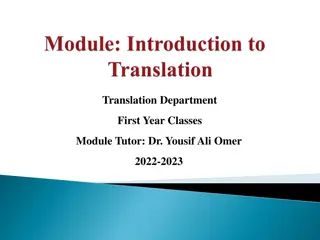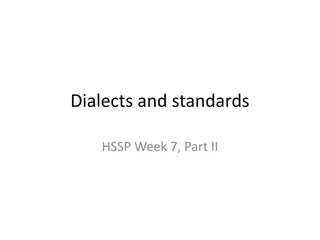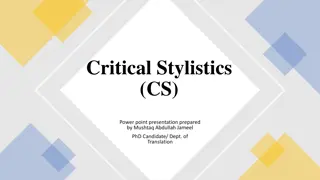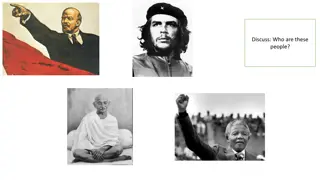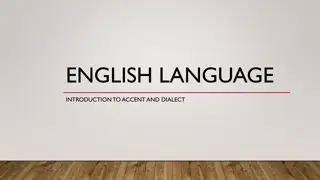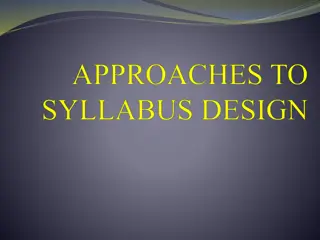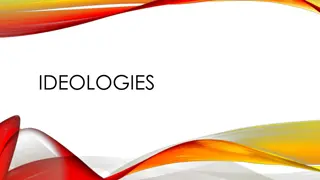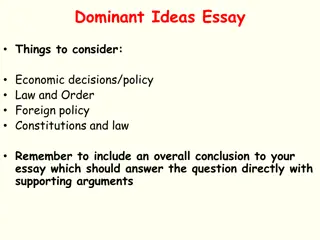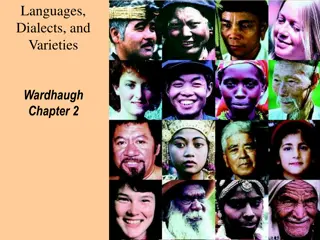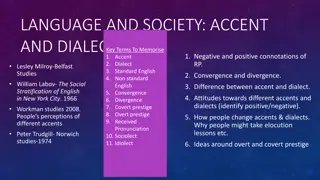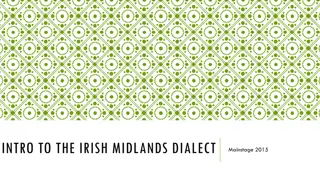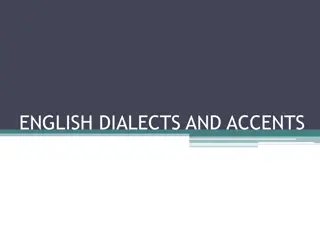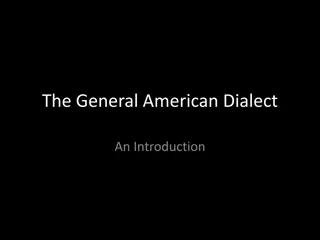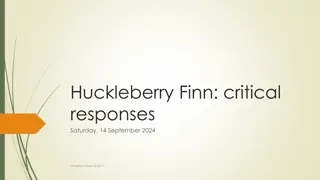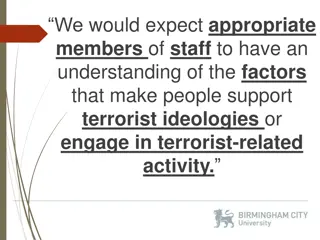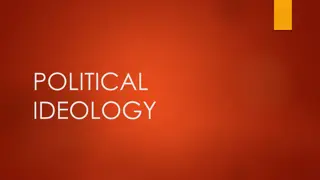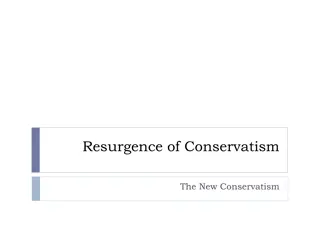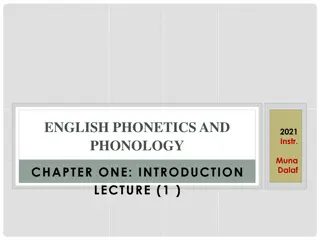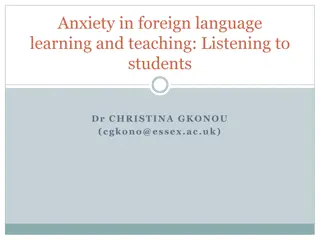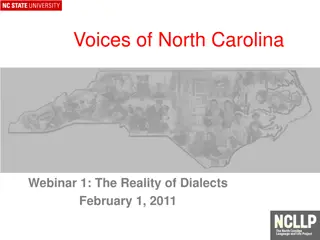Language Ideologies in Dialect Contact Situations
The study explores how language ideologies influence the legitimacy and status of different dialect varieties in contact situations. It delves into the construction of power relations, social sameness and difference, and cultural stereotypes through language use. Key concepts such as language ideologies and multisitedness are discussed, emphasizing the complex interplay between beliefs, political interests, and socio-cultural experiences in shaping linguistic perceptions.
Download Presentation

Please find below an Image/Link to download the presentation.
The content on the website is provided AS IS for your information and personal use only. It may not be sold, licensed, or shared on other websites without obtaining consent from the author.If you encounter any issues during the download, it is possible that the publisher has removed the file from their server.
You are allowed to download the files provided on this website for personal or commercial use, subject to the condition that they are used lawfully. All files are the property of their respective owners.
The content on the website is provided AS IS for your information and personal use only. It may not be sold, licensed, or shared on other websites without obtaining consent from the author.
E N D
Presentation Transcript
Wellington Thesis Group, 14th April 2014 Contact, Mobility and Authenticity: Language Ideologies in Koineisation Laura Tresch Prof. David Britain University of Bern
Introduction How are new dialects represented in metalinguistic discourse?
Introduction How do notions of unity, authenticity, mobility, economic efficiency, etc. in dialect contact situations affect the legitimacy and status of certain varieties (and vice versa)?
Introduction Two relatively new varieties will be analysed, as we regard the early stage of a variety as particularly interesting negotiating its status ideological perceptions in discourse. when it and comes to constructing
Dialect Project More legitimised Local standard variety Overt prestige New Zealand English Less legitimised Non-standard variety Covert prestige Estuary English Southeast England
Key Concepts: Language Ideologies Language ideologies have recently been defined as: beliefs, feelings, and conceptions about language structure and use which often index the political economic interests of individual speakers, ethnic and other interest groups, and nation states. These conceptions, whether explicitly articulated or embodied in communicative practice, represent incomplete or partially successful , attempts to rationalize language usage; such rationalizations are typically multiple, context-bound, and necessarily constructed from the sociocultural experience of the speaker (Kroskrity 2010:192).
Key Concepts: Language Ideologies Language ideologies are never just about language. Language ideologies are [ ] about construction and legitimation of power, the production of social relation of sameness and difference, creation of cultural stereotypes about types of speakers and social groups (Spitulnik 1998: 164). and the
Multisitedness Paul Kroskrity (2010) draws on Susan Philips, stating that there are two types of ideological sites: sites broadcasting, educational system) of ideological production (ex. newspapers, sites of metapragmatic commentary (ex. newspapers, letters to the editor) [I]t is only the latter which both requires and demonstrates the discursive consciousness of speakers (Kroskrity 2010: 199).
Case Study: New Zealand English Language Ideologies: the Formation and Legitimisation of New Zealand English
Case Study: New Zealand English Introduction: For long only British standard norms (RP) were deemed suitable for media broadcasting purposes Exonormative linguistic orientation. and educational Today NZE is more acceptable and legitimate in areas where before only RP was The country became endonormative.
Case Study: New Zealand English Main aims: Investigate the metalinguistic discourses during the period of transition from a British norm to a New Zealand norm in the media context (and other relevant areas). Identify and examine the (language) ideologies that have shaped and underlain these discourses and their related practices in these media (e.g. broadcasting norms). Consider sociolinguistic and pragmatic effects.
Case Study: New Zealand English Why New Zealand English? Nothing explicitly on language ideologies and on the discourses of the legitimisation of this variety. Relatively new variety of English. Relevant socio-historical and sociolinguistic context: linguistic colonialism (Bell 1992) and cultural cringe (Bayard 2000). Comparability Estuary English and wider project.
Case Study: New Zealand English Methodology: Focus on debates about the appropriateness of New Zealand English vis vis external (British) models of language in public discourses (media, educational system etc.)
Case Study: New Zealand English Salient periods: 1970s-1990s (1973) 1990s-Today
1970s-1990s Change in attitudes and standards (1973 Britain enters the European Union). Related to changes in socio-historical context: general attitudes development of a stronger sense of national identity (see Belich 2001 and Palenski 2012). towards Britain and
1970s-1990s A number of factors are involved in the shift that's apparent in the way some New Zealanders at least now are viewing their own form of English speech. Perhaps the chief point in New Zealand's new, or heightened, independent nationhood (Deverson and Gordon 1985:81). sense of
Case Study: New Zealand English SOURCES: Debates in the main newspapers Policies and Norms Broadcasting Policies Educational Policies and Curriculum Other relevant sites (Internet, Sound Archives ).
Case Study: New Zealand English 1) Newspapers (articles about language and specifically New Zealand English, letters to the editor...): - The New Zealand Listener - The Dominion - The Herald - The Christchurch Press - The Educational Gazette - The Metro Magazine - The North and South Magazine
Case Study: New Zealand English 2) Interviews (on the topic of New Zealand English and attitudes towards this variety, policies, standards, entry criteria, accent correction, debates): Four members of the staff at the Christchurch Broadcasting School (including the admission manager) Employee at the Ministry of Education (Sonia Glogowski, Head Advise, Sector Capability and Rachel Wikaira) Presentation Standards Manager at RNZ (Hewitt Humphrey) Editorial Policy Manager at RNZ (Gael Woods) New Zealand English experts (Hay, Deverson, Gordon) Journalist (Lindsay Perigo) Speech coach (David England) Former newsreaders (Hewitt Humphrey, Geoff Robinson, Judy Bailey) Auckland Journalism School professors (Mollgaard, Hoar, Sissons) David Killick (Freelance journalist and photographer, Home editor, The Press) David Dunley (Director of the Tandem Voice Booth)
Case Study: New Zealand English 3) Policies and Norms: RNZ/TVNZ Pronunciation Guides, Editorial Policies, Style Books, Accent Correction, Presentation Standards etc. (also public comments on these). Radio New Zealand s reference library 4) TV and Radio Archives: Programmes on the topic, preferably with public participation and comments (New Zealand Film Archive, Sound Archives, Archives New Zealand). 5) Online material: Youtube comments (accent imitation and parody videos), blogs, online articles and related comments section.
Case Study 2: New Zealand English Were there also people who supported this variety? What were the arguments in favour of it? Why does the academic literature focus mainly on negative comments? perceptions and
Some Debates: Three main newspapers debates: 1) Listener, 2009. Triggered by Jane Clifton's article "Mincing words . 2) Listener, 2005 triggered by comments on TV documentary New Zild . 3) The Press, 1997. Triggered by Bernard Gunn's article New Zild speech is turning our English into a foreign language .
Some Debates: Three substantial online debates: 4) Lindsay Perigo s article Kiwi accent killing the news with 550 comments ( http://www.stuff.co.nz/stuff-nation/8185142/Kiwi-accent-killing-the-news). 5) YouTube video, parody NZE with 1700 comments (https://www.youtube.com/watch?v=u7t2f-L6Z04). 6) YouTube Beached Whale video with 11 000 comments (https://www.youtube.com/watch?v=ZdVHZwI8pcA).
Some Examples New Zild is now a mere pidgin. (The Press, 1997) The time is past for putting ourselves down. New Zealand has come of age as a nation and there is no reason whatsoever to deny our linguistic identity. (The Press 1997)
Some examples There is a huge difference, see the Australians (or Aussies as you put it) do SPEAK English, but for the kiwis, they DON T. Would be really breaking news to hear a kiwi speak! I believe you were referring to the fruit, OR??? (Youtube) We're proud of our New Zealand accent in a way we never used to be. (Jim Mora)
Questions Where else could manifestations of meta- linguistic discourse and language ideologies be found? Any debates today?
Bibliography Bayard, D. 2000. The cultural cringe revisited: changes through time in Kiwi attitudes towards accents. In A. Bell and K. Kuiper (Eds.) New Zealand English. Amsterdam: John Benjamins Publishing Company, 297-324. Belich, J. 2001. Paradise Reforged: a History of the New Zealanders; from the 1880s to the Year 2000. New Zealand: Penguin Books. Bell, A. 1991. The politics of English in New Zealand. In G. McGregor and M. Williams, Dirty Silence: Aspects of Language and Literature in New Zealand. Essays arising from the University of Waitako Winter Lecture Series of 1990. Auckland: Oxford University Press, 65- 75 Bell, A. 1992. Hit and Miss: Referee Design in the Dialects of New Zealand Television Advertisements.Language & Communication 12: 314, 327-40. Deverson, T. and E. Gordon 1985. New Zealand English in the twentieth Century. In T. Deverson and E. Gordon (Eds.) New Zealand English: an Introduction to New Zealand Speech and Usage. Hong Kong: Heinemann, 52-8
Bibliography Duranti, A. 2001 (Ed.). Linguistic anthropology: history, ideas, and issues. In A. Duranti, Liguistic Anthropology: a Reader. Oxford: Blackwell Publishers, 1-38. Kroskrity, P.V. 2010. Language ideologies - Evolving perspectives. In J. Jaspers, stman, J-O, Verschueren, J. (Eds.) Society and Language Use. Amsterdam/Philadelphia: John Benjamins Publishing Company. Palenski, R. 2012. The Making of New Zealanders. Auckland: Auckland University Press. Spitulnik, D. 1998. Mediating unity and diversity: the production of language ideologies in Zambian broadcasting. In B.B. Schieffelin, K.A Woolard and P.V. Kroskrity (Eds.) Language Ideologies: Practice and Theory. New York and Oxford: Oxford University Press, 163-189.


